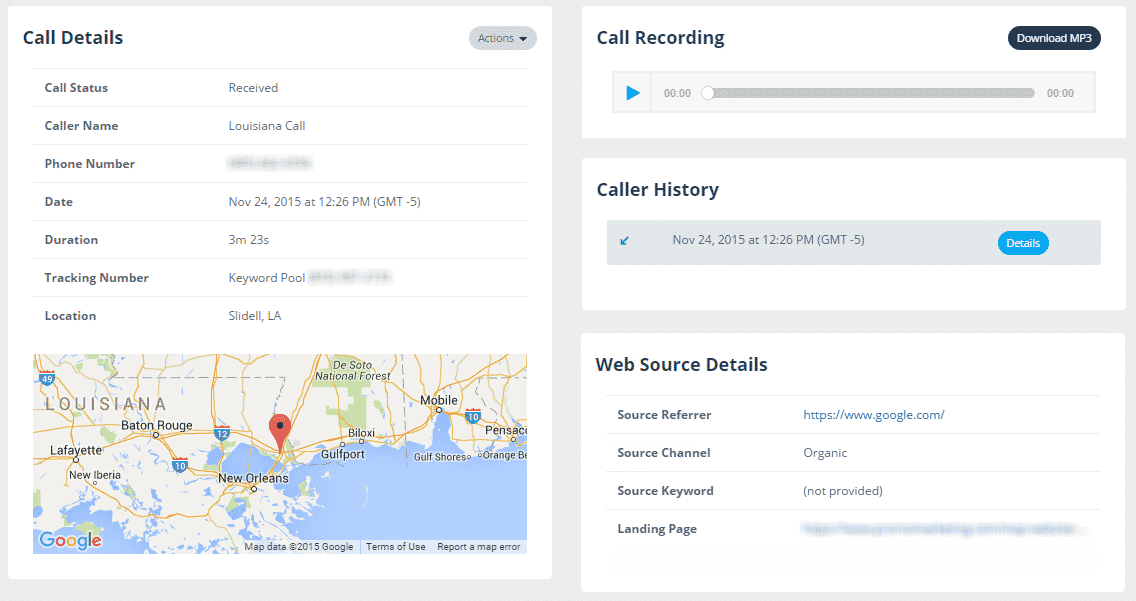With the increase in popularity of call tracking solutions, we often get questions from business owners about the legality of recording incoming calls from their clients. In the U.S., federal law and most states require only one party be aware that the call is being recording; however, some states have more stringent laws that must be adhered to.
As a best practice and for the sake of transparency, we recommend announcing that the call will be recorded to everyone involved.
Call Tracking
Before getting into more details, a bit of background on call tracking.
These are platforms that allow you to track incoming phone calls that originate from your website giving you information about how that caller arrived on your site, what pages they viewed and even what keyword they searched for on a search engine.

Call tracking works by dynamically replacing your primary number with a tracking number whenever someone arrives on your site. If a visitor calls this tracking number, the call is automatically forwarded to your primary number and details about the callers visit are gathered for reporting.
Most call tracking tools, including our Call Tracker solution, have an option to record these calls so you can review them later which is where you run into potential issues with phone recording laws.
Phone Recording Laws
Most state laws only require that one party be informed about the recording, so since you’re already aware of the recording settings in your call tracking solution, you count as that one party and notifying callers is not required.
However, California, Connecticut, Florida, Hawaii, Illinois, Maryland, Massachusetts, Montana, New Hampshire, Pennsylvania, and Washington have stricter laws in place that require all parties involved in the call to be notified of the recording.
Does that mean you’re off the hook if you live in a state that requires one-party consent? Not necessarily. There’s a bit of gray area when it comes to interstate calls, but it’s possible that the laws from the caller’s state would apply. So even if you’re in Arizona but someone calls from California, the all-party consent law may be applicable.
In short, you’re better off including a short message stating that the call will be recorded just to be safe. Our Call Tracker platform can announce a message, such as “This call will be recorded for quality assurance”, before the call is connected.
If you have any questions about how call recording laws may affect your business, feel free to reach out to our support team. And if you don’t already have a call tracking solution in place, check out Pronto Call Tracker.

